Huawei’s latest US headache: Senate bill would spend US$1 billion on developing a 5G competitor
STATE CAPITALISM BY ANY OTHER NAME
‘We cannot allow Chinese state-directed telecommunications companies to surpass American competitors,’ says sponsor Senator Marco Rubio
The bill is introduced a day after Secretary of State Mike Pompeo tells Silicon Valley group China ‘presents unique challenges, especially to your industry’
Mark Magnier Published:15 Jan, 2020
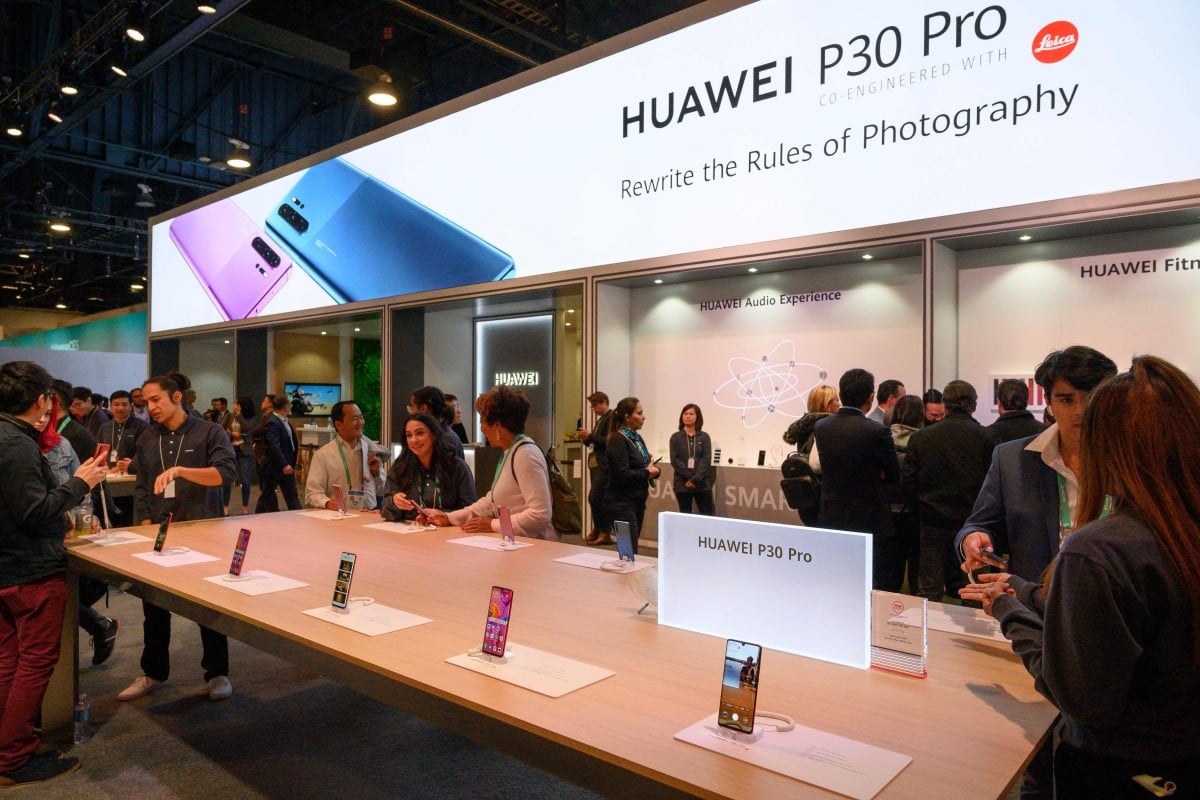
Huawei smartphones last week at the 2020 Consumer Electronics Show in Las Vegas. Photo: AFP
New legislation introduced in the US Senate on Tuesday aims to create a viable Western alternative to Huawei Technologies and undercut China’s dominance in global 5G networks.
One of the biggest problems in Washington’s bid to counter Chinese strength in 5G networks – the faster and higher capacity fifth generation of telecommunication systems – is the lack of global alternatives to Huawei.
The US does not now have a viable competitor, while Finland’s Nokia, Sweden’s Ericsson and even South Korea’s Samsung cannot match the complete technological package and attractive financing that Huawei offers.
The Senate bill tries to address that gap. If passed, it would spend more than US$1 billion to bolster Western competitiveness, allocate new spectrum and support research and development in the telecommunications industry.
“We are at a critical point in history for defining the future of the US-China relationship in the 21st century, and we cannot allow Chinese state-directed telecommunications companies to surpass American competitors,” said Senator Marco Rubio, Republican of Florida, a sponsor of the bill.
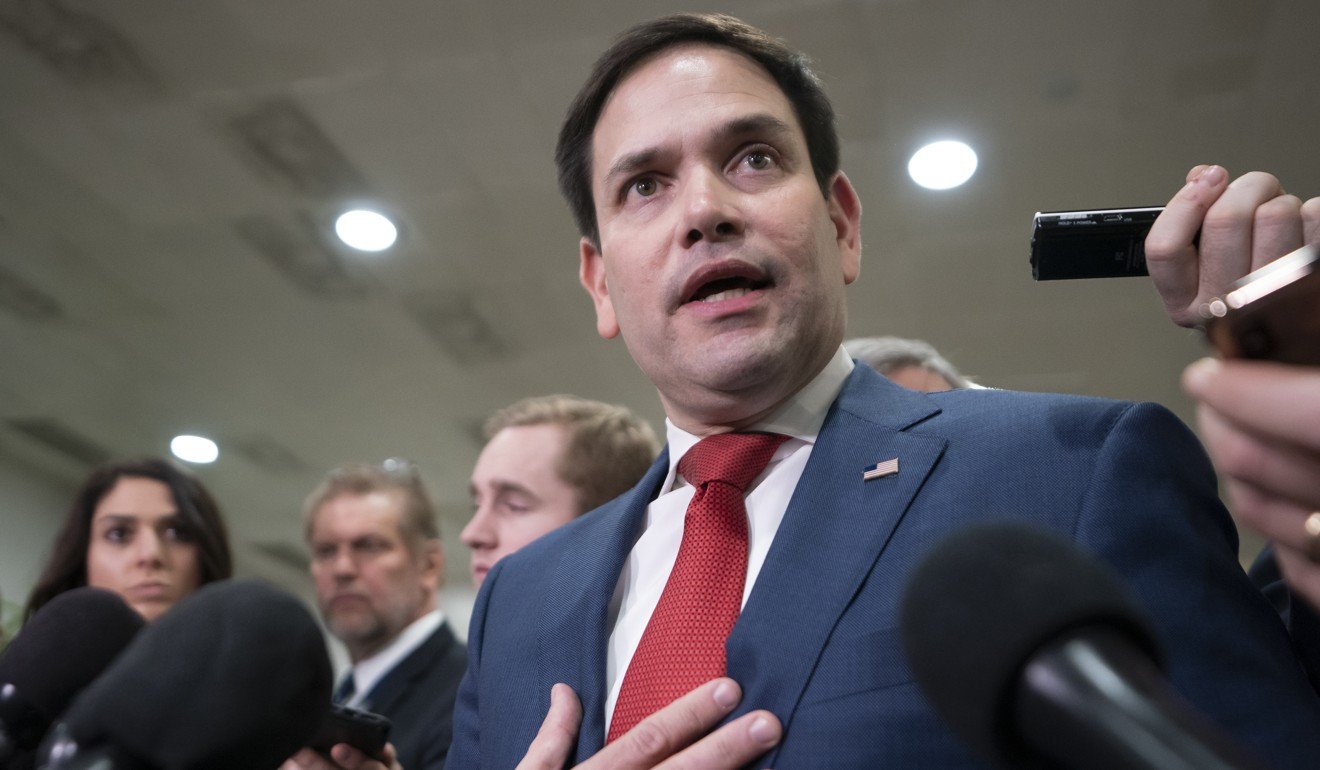
Senator Marco Rubio, a sponsor of the Utilising Strategic Allied Telecommunications Act: “We are at a critical point in history for defining the future of the US-China relationship in the 21st century.” Photo: AP
Rubio added that Washington’s efforts at convincing foreign allies to ban the Shenzhen-based Huawei from their networks have been encumbered by a lack of viable, affordable alternatives. Those, he said, were needed to counter “malign state-directed telecommunications companies that pose a clear and growing threat to the economic and national security of the US and our allies”.
Speaking in Silicon Valley a day earlier, US Secretary of State Mike Pompeo echoed the senators’ contention that excluding Chinese carriers from 5G systems in the West was essential.
“China – specifically the Chinese Communist Party – presents unique challenges, especially to your industry,” Pompeo told the Silicon Valley Leadership Group, a civic group.
“We’re putting our allies and partners on notice about the massive security and privacy risks connected to letting Huawei construct their 5G networks inside of their countries.”

US Secretary of State Mike Pompeo in San Francisco on Monday. Photo: AFP
“This isn’t about selling American stuff. It’s not an American commercial effort. It’s a national security effort,” Pompeo added.
The bill is the latest pressure applied on Huawei by Washington. The Trump administration has blocked government agencies from using Huawei devices; added it to on an “entity list” of foreign companies banned from buying US technology; lobbied allies not to use Huawei equipment in their 5G networks; and pushed Canada to detain Meng Wanzhou, Huawei’s chief financial officer and the founder’s daughter, on charges she had violated sanctions against doing business with Iran.
And the administration is considering a rule change aimed at restricting sales to Huawei of non-sensitive items, such as standard mobile phone chips, made in third countries that rely on US technology, software, or components, Reuters reported.
US makes final plea for Britain to block Huawei from its 5G network
14 Jan 2020
![]()
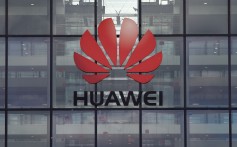
The six Democratic and Republican senators who introduced the bill – the Utilising Strategic Allied Telecommunications Act – underscore that moves aimed at challenging China enjoy broad bipartisan support in Washington these days.
The US and China, the world’s two largest economies, have hit the pause button on their 18-month trade war with Wednesday’s scheduled signing of a phase-one trade agreement. But US tariffs remain on US$250 billion worth of Chinese goods. And Washington’s suspicions towards Beijing has spread to the education, justice, investment and espionage sectors, among others.
Even so, while it is relatively easy to introduce a bill, even one with bipartisan support, it remains far more difficult to get it passed – particularly in the current environment.
At the best of times, only about 5 per cent of bills that are introduced become law. And these are not the best of times.
In addition to turf battles between the executive and legislative branches, the Senate is poised, ready or not, to consider the impeachment trial of US President Donald Trump, which could start as early as Thursday. Moreover, the political lines are drawing taut in advance of the presidential election in November.
Huawei said the bill was misguided.
“Huawei has spent billions in 5G research, so it would be unfortunate to see such a waste of US taxpayer’s money to duplicate effrts when there are more cost effective ways to ensure the security of a network,” said Donald J. Morrissey, the company’s US director of government affairs.
A better approach, he added, “is to verify through testing, setting high global standards, and providing risk assurance and risk mitigation procedures and standards to ensure network security.”
The bill’s provisions include a requirement that the Federal Communications Commission spend at least US$750 million of the revenue it receives from auctioning new spectrum licenses to create a research and development fund. This would be used to spur innovation in open-architecture, software-based wireless technologies and the US mobile broadband market.
It also calls for creating a US$500 million fund in partnership with foreign allies to speed up adoption of “trusted and secure equipment globally” – backed up by required reports to Congress ensuring that progress is being made.
US lawmaker seeks ban on sharing intelligence with countries using Huawei’s 5G
![]()
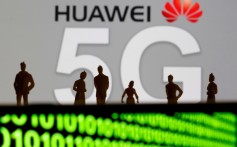
The bill also calls for a blueprint on how small and rural telecoms companies – many of whom have purchased Huawei equipment in part because of its lower cost – can shift to open source, non-Chinese equipment. It would also push for stronger US leadership in international standards-setting bodies amid concern that Chinese companies will create and dominate the standards that govern the next generation of telecommunications technology.
Finally it would encourage suppliers to become larger and adopt common standards as a way to help drive down the cost of their products and offer a more attractive alternative to Huawei equipment.
Huawei launches new legal action against FCC’s rural carrier purchase ban
“Every month that the US does nothing, Huawei stands poised to become the cheapest, fastest, most ubiquitous global provider of 5G, while US and Western companies and workers lose out on market share and jobs,” said co-sponsor Senator Mark Warner, a Virgina Democrat. “It is imperative that Congress address the complex security and competitiveness challenges that Chinese-directed telecommunication companies pose.”
Telecoms industry and national security groups said the bill was a step in the right direction. “This bill goes right to the core of the concerns of the US intelligence community, which is securing communications networks with US-allied intelligence services,” said Kyle Sullivan, the China practice lead at Crumpton Group, an intelligence-based business consultancy. “Providing an American alternative to Huawei would go a long way.”
Huawei says relationship with government ‘no different’ from other private firms in China
![]()
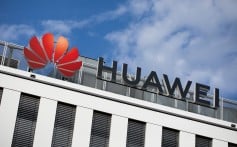
One telecoms executive, who asked not to be identified given his work with the US government, called the bill’s objectives a bit muddled.
While the sponsors speak repeatedly about excluding Huawei and creating an alternative, he noted, much of the funding appears aimed at bolstering open technical systems that allow easy connections among all carriers, presumably including Huawei as well as ZTE Corp, the Chinese telecoms equipment maker. “It’s a little obscure as to what they’re actually talking about developing,” he said.
But the bill focus on encouraging US software companies and allowing others to make hardware isn’t a bad strategy, he added. “This actually looks like a fairly interesting and realistic response,” the executive said. “This would appear to focus resources to capitalise on US core competencies. Which makes sense, because $1 billion isn’t going to somehow … create a box maker powerhouse in the US.”
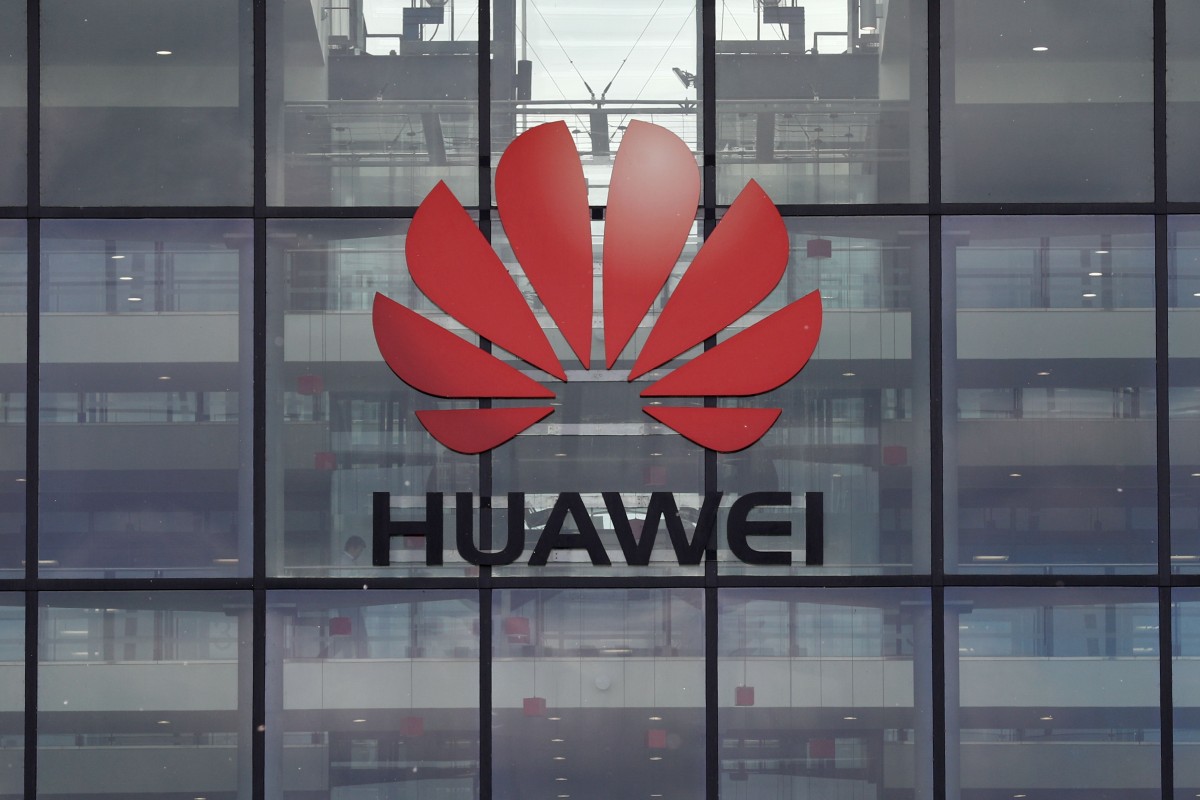
The US Commerce Department in May placed Huawei Technologies on a trade blacklist, citing national security concerns. Photo: AFP
The US government is nearing publication of a rule that would vastly expand its powers to block shipments of foreign-made goods to China’s Huawei, as it seeks to squeeze the blacklisted telecoms company, two sources said.
The US Commerce Department in May placed Huawei Technologies on a trade blacklist, citing national security concerns. That allowed the US government to restrict sales of US-made goods to the company and a small number of items made abroad that contain US technology.
Under current regulations, key foreign supply chains remain beyond the reach of US authorities, fuelling frustration among China hawks within the administration and a push to expand US authority to block more shipments to Huawei.
But US businesses say an effort to enable the government to regulate more sales to Huawei to include low-tech items made overseas with very little US technology could end up needlessly hurting US companies while encouraging Huawei to source more goods abroad.
Reuters reported in November that the Commerce Department was considering broadening the De minimis Rule, which dictates how much US content in a foreign-made product gives the US government authority to regulate an export.

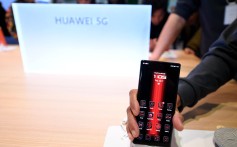
Under current regulations, the United States can require a license or block the export of many hi-tech products shipped to China from other countries if US-made components make up more than 25 per cent of the value.
According to two people familiar with the matter, the department has drafted a rule that would lower the threshold only on exports to Huawei to 10 per cent and expand the purview to include non-technical goods like consumer electronics including non-sensitive chips.
According to one of the people, the Commerce Department sent the rule to the Office of Management and Budget, following an inter-agency meeting last week.
If other government agencies sign off on the measure, the rule could be issued in a matter of weeks as a so-called final rule, with no opportunity for public comment before it goes into effect, the people said.
The Commerce Department has also drafted a regulation that would expand the so-called Foreign Direct Product Rule, which subjects foreign-made goods that are based on US technology or software to US oversight. This would be broadened to include low-tech items made abroad that are based on US technology and shipped to Huawei, the people said.
In December, Huawei, the world’s largest smartphone maker, reported an 18 per cent jump in revenue for 2019 and a 20 per cent increase in shipments of smartphones.
Additional reporting by Reuters
Mark Magnier is a US correspondent based in Washington. Before joining the Post, he worked for the Wall Street Journal in China and for the Los Angeles Times in India, China and Japan. He’s covered the Chinese economy, China and India’s explosive rise and conflicts in Iraq, Pakistan and Afghanistan.
US venture capital in China tumbles as tech decoupling deepens
Canada says Huawei’s Meng defrauded HSBC, tells court to reject release bid
11 Jan 2020

Judge rejects request to broadcast Huawei executive’s extradition hearing
15 Jan 2020

‘We cannot allow Chinese state-directed telecommunications companies to surpass American competitors,’ says sponsor Senator Marco Rubio
The bill is introduced a day after Secretary of State Mike Pompeo tells Silicon Valley group China ‘presents unique challenges, especially to your industry’
Mark Magnier Published:15 Jan, 2020

Huawei smartphones last week at the 2020 Consumer Electronics Show in Las Vegas. Photo: AFP
New legislation introduced in the US Senate on Tuesday aims to create a viable Western alternative to Huawei Technologies and undercut China’s dominance in global 5G networks.
One of the biggest problems in Washington’s bid to counter Chinese strength in 5G networks – the faster and higher capacity fifth generation of telecommunication systems – is the lack of global alternatives to Huawei.
The US does not now have a viable competitor, while Finland’s Nokia, Sweden’s Ericsson and even South Korea’s Samsung cannot match the complete technological package and attractive financing that Huawei offers.
The Senate bill tries to address that gap. If passed, it would spend more than US$1 billion to bolster Western competitiveness, allocate new spectrum and support research and development in the telecommunications industry.
“We are at a critical point in history for defining the future of the US-China relationship in the 21st century, and we cannot allow Chinese state-directed telecommunications companies to surpass American competitors,” said Senator Marco Rubio, Republican of Florida, a sponsor of the bill.

Senator Marco Rubio, a sponsor of the Utilising Strategic Allied Telecommunications Act: “We are at a critical point in history for defining the future of the US-China relationship in the 21st century.” Photo: AP
Rubio added that Washington’s efforts at convincing foreign allies to ban the Shenzhen-based Huawei from their networks have been encumbered by a lack of viable, affordable alternatives. Those, he said, were needed to counter “malign state-directed telecommunications companies that pose a clear and growing threat to the economic and national security of the US and our allies”.
Speaking in Silicon Valley a day earlier, US Secretary of State Mike Pompeo echoed the senators’ contention that excluding Chinese carriers from 5G systems in the West was essential.
“China – specifically the Chinese Communist Party – presents unique challenges, especially to your industry,” Pompeo told the Silicon Valley Leadership Group, a civic group.
“We’re putting our allies and partners on notice about the massive security and privacy risks connected to letting Huawei construct their 5G networks inside of their countries.”

US Secretary of State Mike Pompeo in San Francisco on Monday. Photo: AFP
“This isn’t about selling American stuff. It’s not an American commercial effort. It’s a national security effort,” Pompeo added.
The bill is the latest pressure applied on Huawei by Washington. The Trump administration has blocked government agencies from using Huawei devices; added it to on an “entity list” of foreign companies banned from buying US technology; lobbied allies not to use Huawei equipment in their 5G networks; and pushed Canada to detain Meng Wanzhou, Huawei’s chief financial officer and the founder’s daughter, on charges she had violated sanctions against doing business with Iran.
And the administration is considering a rule change aimed at restricting sales to Huawei of non-sensitive items, such as standard mobile phone chips, made in third countries that rely on US technology, software, or components, Reuters reported.
US makes final plea for Britain to block Huawei from its 5G network
14 Jan 2020

The six Democratic and Republican senators who introduced the bill – the Utilising Strategic Allied Telecommunications Act – underscore that moves aimed at challenging China enjoy broad bipartisan support in Washington these days.
The US and China, the world’s two largest economies, have hit the pause button on their 18-month trade war with Wednesday’s scheduled signing of a phase-one trade agreement. But US tariffs remain on US$250 billion worth of Chinese goods. And Washington’s suspicions towards Beijing has spread to the education, justice, investment and espionage sectors, among others.
Even so, while it is relatively easy to introduce a bill, even one with bipartisan support, it remains far more difficult to get it passed – particularly in the current environment.
At the best of times, only about 5 per cent of bills that are introduced become law. And these are not the best of times.
In addition to turf battles between the executive and legislative branches, the Senate is poised, ready or not, to consider the impeachment trial of US President Donald Trump, which could start as early as Thursday. Moreover, the political lines are drawing taut in advance of the presidential election in November.
Huawei said the bill was misguided.
“Huawei has spent billions in 5G research, so it would be unfortunate to see such a waste of US taxpayer’s money to duplicate effrts when there are more cost effective ways to ensure the security of a network,” said Donald J. Morrissey, the company’s US director of government affairs.
A better approach, he added, “is to verify through testing, setting high global standards, and providing risk assurance and risk mitigation procedures and standards to ensure network security.”
The bill’s provisions include a requirement that the Federal Communications Commission spend at least US$750 million of the revenue it receives from auctioning new spectrum licenses to create a research and development fund. This would be used to spur innovation in open-architecture, software-based wireless technologies and the US mobile broadband market.
It also calls for creating a US$500 million fund in partnership with foreign allies to speed up adoption of “trusted and secure equipment globally” – backed up by required reports to Congress ensuring that progress is being made.
US lawmaker seeks ban on sharing intelligence with countries using Huawei’s 5G

The bill also calls for a blueprint on how small and rural telecoms companies – many of whom have purchased Huawei equipment in part because of its lower cost – can shift to open source, non-Chinese equipment. It would also push for stronger US leadership in international standards-setting bodies amid concern that Chinese companies will create and dominate the standards that govern the next generation of telecommunications technology.
Finally it would encourage suppliers to become larger and adopt common standards as a way to help drive down the cost of their products and offer a more attractive alternative to Huawei equipment.
Huawei launches new legal action against FCC’s rural carrier purchase ban
“Every month that the US does nothing, Huawei stands poised to become the cheapest, fastest, most ubiquitous global provider of 5G, while US and Western companies and workers lose out on market share and jobs,” said co-sponsor Senator Mark Warner, a Virgina Democrat. “It is imperative that Congress address the complex security and competitiveness challenges that Chinese-directed telecommunication companies pose.”
Telecoms industry and national security groups said the bill was a step in the right direction. “This bill goes right to the core of the concerns of the US intelligence community, which is securing communications networks with US-allied intelligence services,” said Kyle Sullivan, the China practice lead at Crumpton Group, an intelligence-based business consultancy. “Providing an American alternative to Huawei would go a long way.”
Huawei says relationship with government ‘no different’ from other private firms in China

One telecoms executive, who asked not to be identified given his work with the US government, called the bill’s objectives a bit muddled.
While the sponsors speak repeatedly about excluding Huawei and creating an alternative, he noted, much of the funding appears aimed at bolstering open technical systems that allow easy connections among all carriers, presumably including Huawei as well as ZTE Corp, the Chinese telecoms equipment maker. “It’s a little obscure as to what they’re actually talking about developing,” he said.
But the bill focus on encouraging US software companies and allowing others to make hardware isn’t a bad strategy, he added. “This actually looks like a fairly interesting and realistic response,” the executive said. “This would appear to focus resources to capitalise on US core competencies. Which makes sense, because $1 billion isn’t going to somehow … create a box maker powerhouse in the US.”

The US Commerce Department in May placed Huawei Technologies on a trade blacklist, citing national security concerns. Photo: AFP
The US government is nearing publication of a rule that would vastly expand its powers to block shipments of foreign-made goods to China’s Huawei, as it seeks to squeeze the blacklisted telecoms company, two sources said.
The US Commerce Department in May placed Huawei Technologies on a trade blacklist, citing national security concerns. That allowed the US government to restrict sales of US-made goods to the company and a small number of items made abroad that contain US technology.
Under current regulations, key foreign supply chains remain beyond the reach of US authorities, fuelling frustration among China hawks within the administration and a push to expand US authority to block more shipments to Huawei.
But US businesses say an effort to enable the government to regulate more sales to Huawei to include low-tech items made overseas with very little US technology could end up needlessly hurting US companies while encouraging Huawei to source more goods abroad.
Reuters reported in November that the Commerce Department was considering broadening the De minimis Rule, which dictates how much US content in a foreign-made product gives the US government authority to regulate an export.

Under current regulations, the United States can require a license or block the export of many hi-tech products shipped to China from other countries if US-made components make up more than 25 per cent of the value.
According to two people familiar with the matter, the department has drafted a rule that would lower the threshold only on exports to Huawei to 10 per cent and expand the purview to include non-technical goods like consumer electronics including non-sensitive chips.
According to one of the people, the Commerce Department sent the rule to the Office of Management and Budget, following an inter-agency meeting last week.
If other government agencies sign off on the measure, the rule could be issued in a matter of weeks as a so-called final rule, with no opportunity for public comment before it goes into effect, the people said.
The Commerce Department has also drafted a regulation that would expand the so-called Foreign Direct Product Rule, which subjects foreign-made goods that are based on US technology or software to US oversight. This would be broadened to include low-tech items made abroad that are based on US technology and shipped to Huawei, the people said.
In December, Huawei, the world’s largest smartphone maker, reported an 18 per cent jump in revenue for 2019 and a 20 per cent increase in shipments of smartphones.
Additional reporting by Reuters
Mark Magnier is a US correspondent based in Washington. Before joining the Post, he worked for the Wall Street Journal in China and for the Los Angeles Times in India, China and Japan. He’s covered the Chinese economy, China and India’s explosive rise and conflicts in Iraq, Pakistan and Afghanistan.
US venture capital in China tumbles as tech decoupling deepens
Canada says Huawei’s Meng defrauded HSBC, tells court to reject release bid
11 Jan 2020

Judge rejects request to broadcast Huawei executive’s extradition hearing
15 Jan 2020

No comments:
Post a Comment